
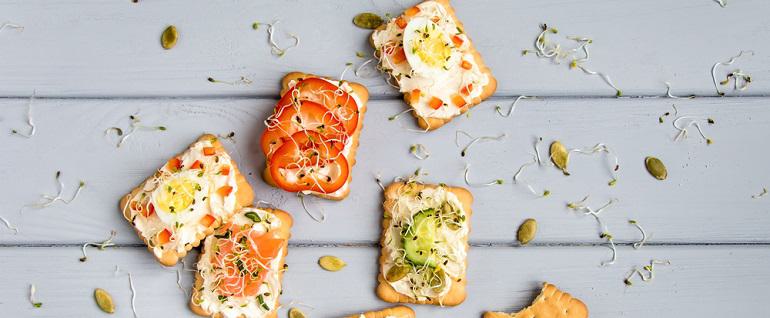

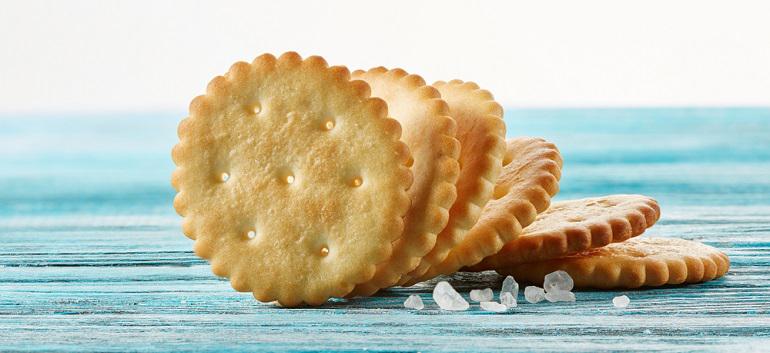 The best way to protect homemade crackers from spoiling and damage is to store them in an airtight container. An airtight container will keep the crackers from coming in contact with natural gases that could potentially cause them to spoil faster. Additionally, like a bag, it will also keep out common critters like ants. Another advantage to containers is that their hard exterior will protect the crackers and prevent them from being smushed before you can enjoy them. The container you choose will largely depend on your lifestyle and the dishware you have in your kitchen. If you plan on snacking on crackers around the house, then storing all of them in a large container may be sufficient. However, if you plan to enjoy a handful of crackers on the go, then it's best to portion them out into smaller containers. When storing homemade crackers, plastic, metal and glass containers are the most commonly used. By storing your snacks in containers, youll be able to prevent stale crackers before you get a chance to enjoy them.
The best way to protect homemade crackers from spoiling and damage is to store them in an airtight container. An airtight container will keep the crackers from coming in contact with natural gases that could potentially cause them to spoil faster. Additionally, like a bag, it will also keep out common critters like ants. Another advantage to containers is that their hard exterior will protect the crackers and prevent them from being smushed before you can enjoy them. The container you choose will largely depend on your lifestyle and the dishware you have in your kitchen. If you plan on snacking on crackers around the house, then storing all of them in a large container may be sufficient. However, if you plan to enjoy a handful of crackers on the go, then it's best to portion them out into smaller containers. When storing homemade crackers, plastic, metal and glass containers are the most commonly used. By storing your snacks in containers, youll be able to prevent stale crackers before you get a chance to enjoy them.
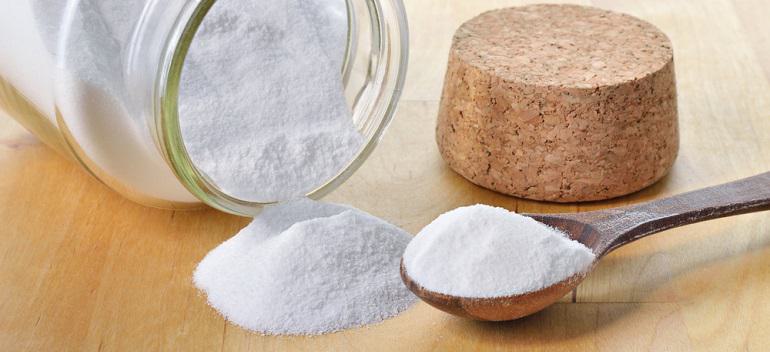 Another great food storage method used to extend the shelf life of crackers is to place a small container of salt or baking soda in the storage cupboard along with your crackers. Like the slice of bread, these ingredients will absorb any excess moisture in the air and keep it away from the crackers.
Another great food storage method used to extend the shelf life of crackers is to place a small container of salt or baking soda in the storage cupboard along with your crackers. Like the slice of bread, these ingredients will absorb any excess moisture in the air and keep it away from the crackers.
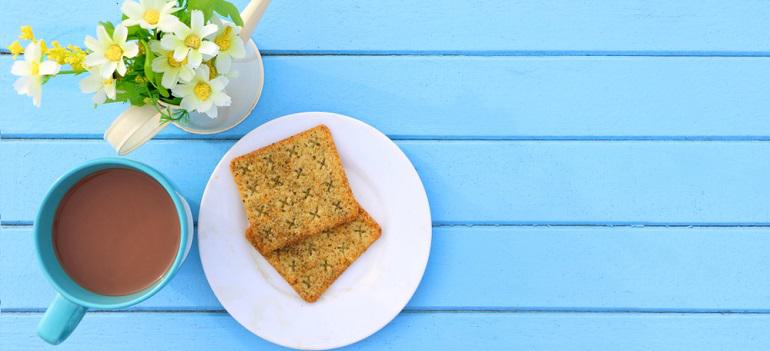 We've discussed how heat can cause crackers to spoil more quickly, but letting the temperature drop too low may give you the same result. If the temperature of your kitchen is below 45F, then your crackers may seek out moisture to absorb. Before making homemade crackers, we recommend experimenting in the kitchen and searching for areas with temperature and humidity control. If crackers come in contact with high amounts of humidity, it can cause bacteria to form, leaving you with mold crackers. Not sure if a space is too humid? If you begin to feel clammy when standing in a room, then it's too damp of an area to store crackers.
We've discussed how heat can cause crackers to spoil more quickly, but letting the temperature drop too low may give you the same result. If the temperature of your kitchen is below 45F, then your crackers may seek out moisture to absorb. Before making homemade crackers, we recommend experimenting in the kitchen and searching for areas with temperature and humidity control. If crackers come in contact with high amounts of humidity, it can cause bacteria to form, leaving you with mold crackers. Not sure if a space is too humid? If you begin to feel clammy when standing in a room, then it's too damp of an area to store crackers.
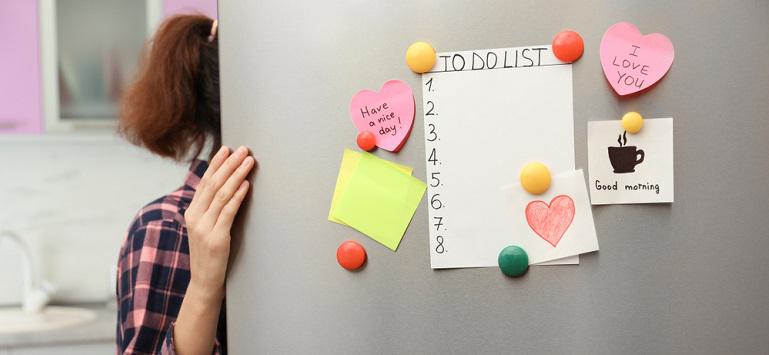 Now that you know crackers shouldn't be stored in the freezer, you may be wondering if the refrigerator is any better. If you're meal planning or packing lunch to grab later on, then the fridge might be a convenient place to store your crackers. However, while a short amount of time in the refrigerator won't harm your crackers, you don't want to keep them in it for long. Like the freezer, the moisture inside a fridge is easily absorbed and will cause crackers to become soggy quickly.
Making homemade crackers is a tasty, fun-filled experience that the entire family can enjoy. Ranging in flavors from sweet to savory, they pair well with fresh dips making them the ideal snack. The next time you make homemade crackers, reference this guide for proper storing methods and tips to ensure they remain fresh for as long as possible. From everyone at Bob's Red Mill, happy baking!
Now that you know crackers shouldn't be stored in the freezer, you may be wondering if the refrigerator is any better. If you're meal planning or packing lunch to grab later on, then the fridge might be a convenient place to store your crackers. However, while a short amount of time in the refrigerator won't harm your crackers, you don't want to keep them in it for long. Like the freezer, the moisture inside a fridge is easily absorbed and will cause crackers to become soggy quickly.
Making homemade crackers is a tasty, fun-filled experience that the entire family can enjoy. Ranging in flavors from sweet to savory, they pair well with fresh dips making them the ideal snack. The next time you make homemade crackers, reference this guide for proper storing methods and tips to ensure they remain fresh for as long as possible. From everyone at Bob's Red Mill, happy baking!